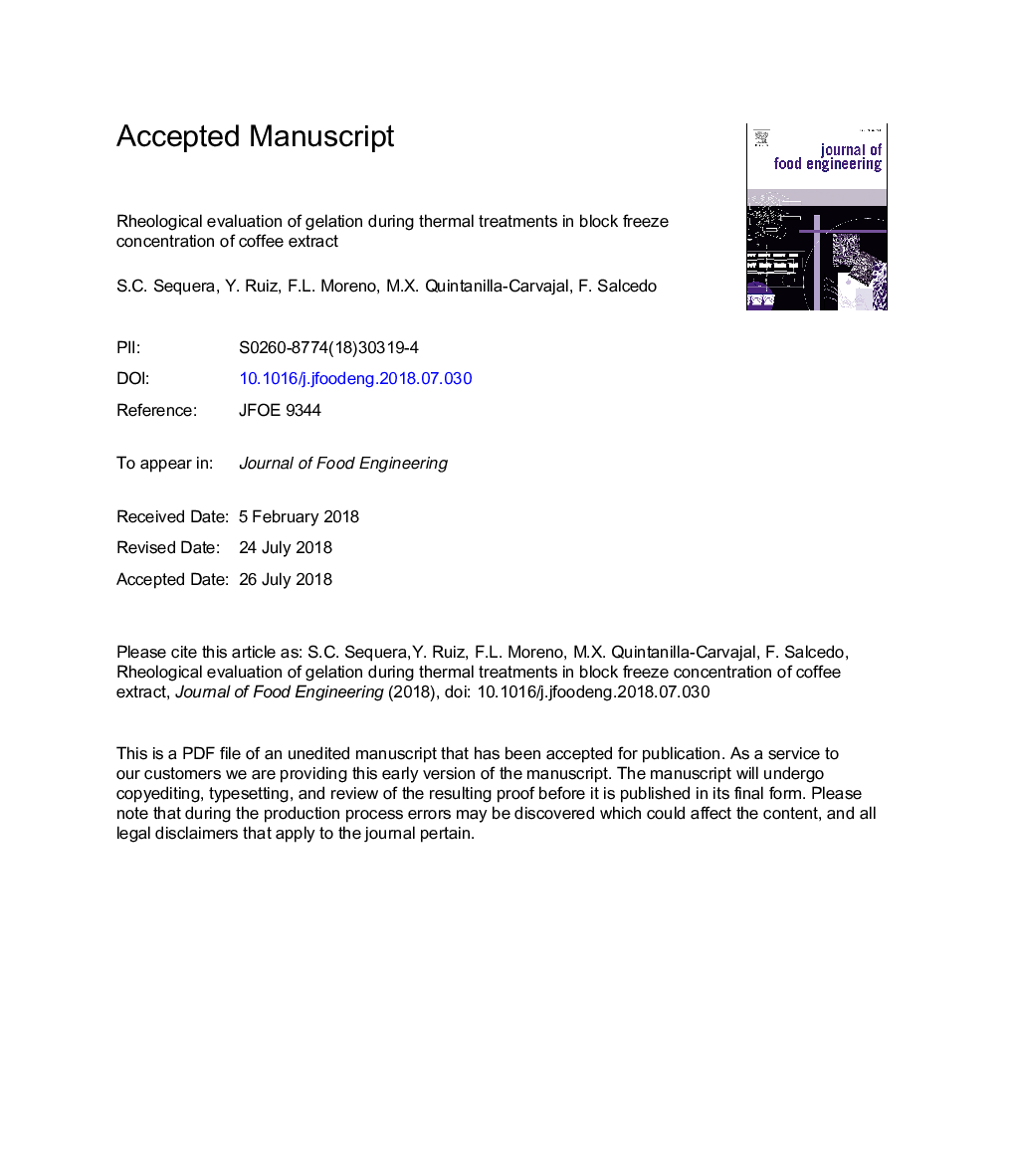| Article ID | Journal | Published Year | Pages | File Type |
|---|---|---|---|---|
| 10126825 | Journal of Food Engineering | 2019 | 26 Pages |
Abstract
Block freeze concentration (BFC) is a promising technique to concentrate coffee extract in the freeze-dried coffee industry. The application of thermal treatments (the use of different cooling/heating ramps and isothermal stages) to BFC lab-scale operations has increased the process's efficiency but has simultaneously led to the formation of gels that reduce the recovery of solids. In this work, we present a methodology to monitor the rheological behavior of coffee extract when subjected to temperature profiles similar to those presented during lab-scale BFC processes. It was revealed that cryogelation occurs at the early stages of the isothermal step (annealing) of a multi-stage temperature profile. For gelation to occur, the annealing temperature should be close to the water's equilibrium melting temperature. Phenomena leading to more efficient BFC processes (solids elution and water recrystallization during isothermal thawing) also promote cryogelation.
Related Topics
Physical Sciences and Engineering
Chemical Engineering
Chemical Engineering (General)
Authors
S.C. Sequera, Y. Ruiz, F.L. Moreno, M.X. Quintanilla-Carvajal, F. Salcedo,
